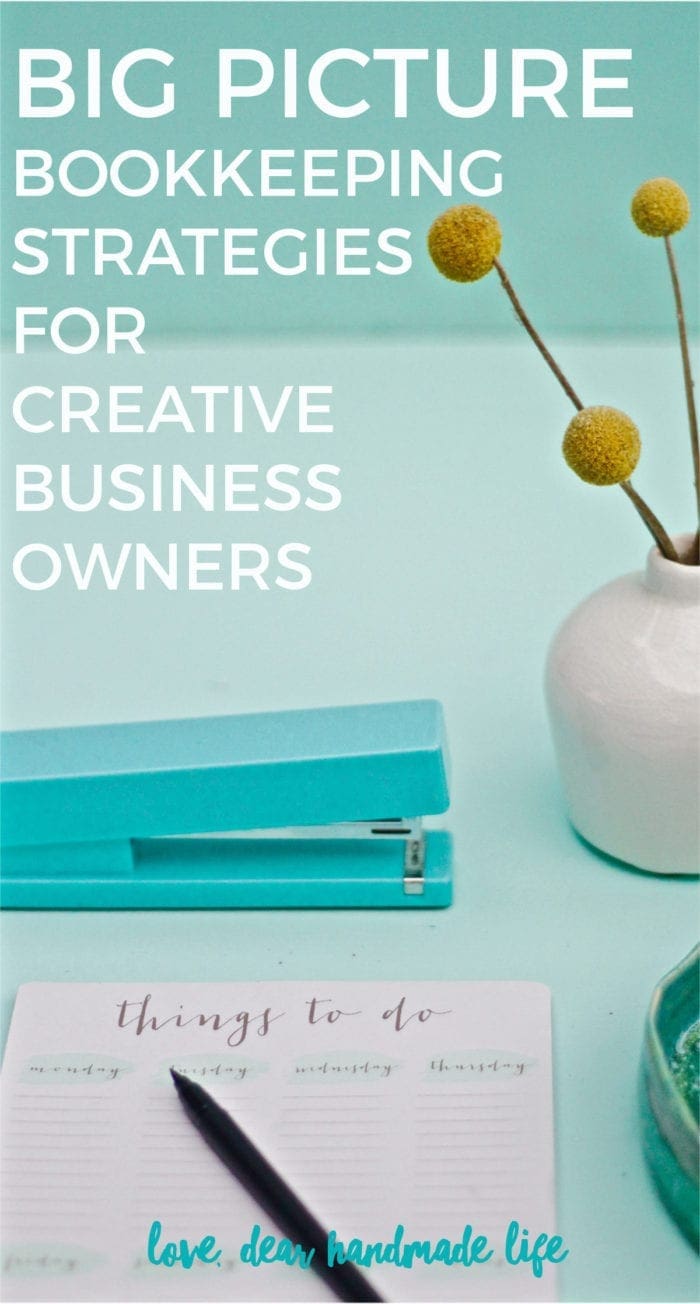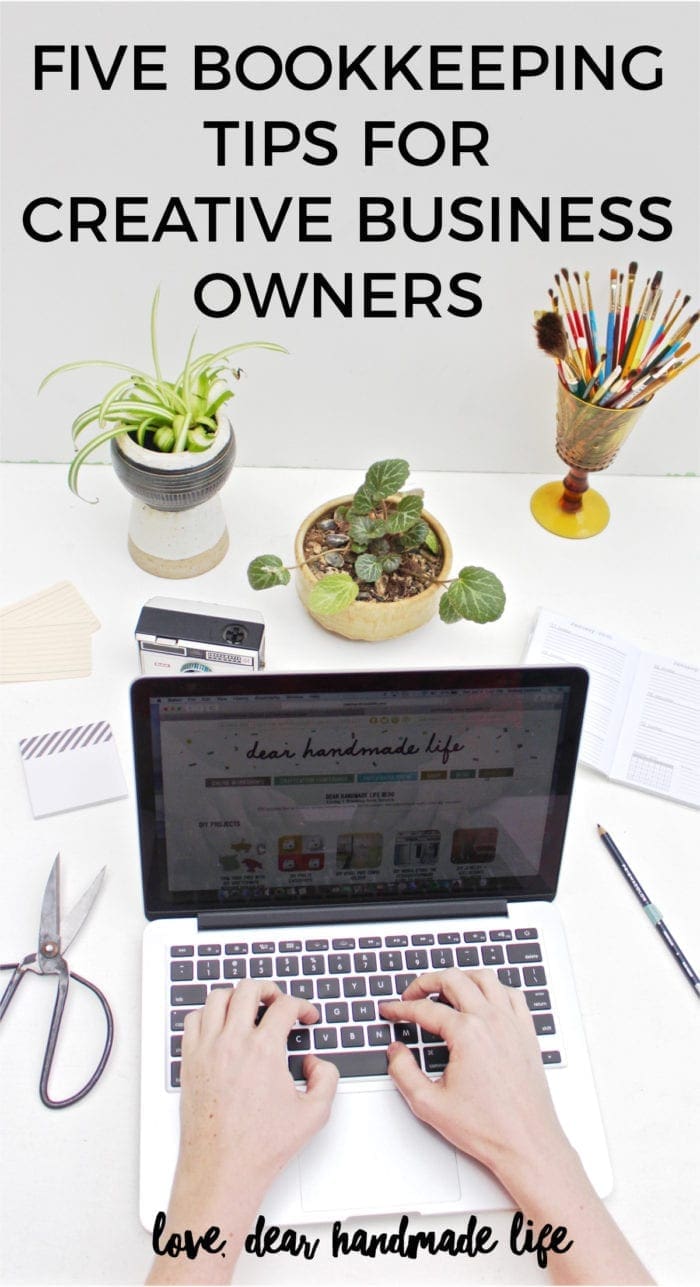Big Picture Bookkeeping Strategies for Creative Owners
Editor’s Note: We recently surveyed our Patchwork Show vendors about the areas of their business that they had the most difficulty with and (no surprise to us) one of the highest scores was finance. If you’re having trouble with something, wouldn’t it make sense to put some time and effort into it? Easier said than done since most of us creatives would rather do dishes, clean out our closets or do just about anything else rather than spend some solid time looking at the financial side of our businesses. But, I’ll tell you from personal experience of being an entrepreneur for nearly two decades that if you ignore your money, money will ignore you. In other words, if you want a successful sustainable business, it’s time to buckle down and address your finances. If numbers aren’t your thing, I urge you to check out our friends at Mazuma. Mazuma is a certified bookkeeper and tax accountant service. This video explains it all in one minute! Mazuma wrote this insightful post for our readers about how to take those first steps towards getting your finances in order so you can focus on the fun parts of your business like designing new products or working with clients. -Nicole S.
Did you know that recent studies have shown that 40% of small businesses are profitable, 30% break even, and 30% are continually losing money?
Those numbers seem fairly bleak for a world that seems to be producing new businesses almost overnight. So what seems to set the 40% of profitable businesses apart from the rest?
Our guess is that they pay attention to the finances right from the start. And although that answer seems biased, because we’re accountants and numbers are our thing, we’ve seen first hand the success that comes to our small business clients when they pay attention to their money, set financial goals, and maintain their books.
It’s easy to get bogged down in all the details of bookkeeping and keeping track of your money. So today we’re offering a few tips that take managing money to the big picture level. Starting here gives you a chance to know where you’re currently at and where you might need to head, when it comes to managing the financial side of your creative business.
So let’s get started.
1. Know What You Are
Right out of the gate, many creatives operate as a sole proprietor. It’s not a bad choice, but we often find that most small business owners do so because they don’t know their options or they’re overwhelmed with the details and aren’t sure which to choose for their business structure.
We hear you. As accountants the numbers and details make sense to us, but we’d feel overwhelmed if we were tasked with handling the creative side of things.
But knowing is half the battle and having a strong understanding of the type of business you are, will make bookkeeping that much simpler.
So are you a Sole Proprietor, LLC, or Corporation? Each has clearly outlined structures when it comes to paying taxes, acceptable ways to reimburse yourself or other employees, and pay structures. And whether you’re starting out fresh or have been in business for a while, knowing the differences will help you select the best option for your creative business.
If you’re looking for a starting point for your research, you can read more about deciding on a business entity here.
2. Keep Finances Separate, No Matter What
It’s one of the most common financial no-no’s out there, yet there are so many creative entrepreneurs and small business owners who are still operating out of personal checking accounts. When it comes to business and personal our best advice is still – keep it separate.
When it comes to excuses for mixing personal and business accounts, we’ve probably heard them all. That said, there is no good reason not to have a separate account for your business.
Not even if your excuse is trying to save money.
Yes, we’ve seen that there are fees strapped onto business accounts, but the FREE checking options are out there – you just may have to search for them.
We recommend starting with your current banking institution. If they don’t offer great options for business banking, check out your local credit unions, and even look for online banking options. Your research will pay off and you’ll be able to save (and invest) that money you would have paid, back into the business.
3. Make Record Keeping Count
We’ve found that when it comes to financial success, “best intentions” are never responsible. Yet many small business owners who don’t find bookkeeping enticing like we do, often set up a plan but fail at implementing it.
There are literally dozens of options for tracking expenses and running accounts receivable and accounts payable for your business, but it won’t make one bit of difference what you choose, if you aren’t committed to making it happen.
We’ve found some of our favorite ways to make bookkeeping a strategy for your creative business rather than just a nuisance include:
-
-
-
- Making a plan – jotting down your goals & plotting out your fiscal year
- Setting a date – consistently scheduling time to review your books & and goals
- Keeping it simple – selecting a method that works but that isn’t complicated enough to spark burnout
- Putting money aside for taxes – so you’ve got the funds to pay when it’s time
- Paying yourself first – so you’re not operating on empty and can actually see and feel the results of your financial success
-
-
These five ideas are simple and easy to implement and you can read in more detail about each of them here.
4. Make Sure You’re Making Money
While record keeping will help you see your earnings and expenses, it’s also important that you’re actually making money. We’ve seen lots of creative entrepreneurs working hard and growing their client list and bookings, but their bottomline doesn’t reflect all that effort.
The reason – their processes aren’t clearly outlined and they spend more time in the “doing mode” making their earnings per hour basically nil. It’s easy to get caught up in the doing, but it’s important that you have processes in place so that your sales and collections are happening too.
Our short list of things that can help define your processes and in turn make sure you’re making money include:
-
-
-
-
- standardize your product offerings and services
- track your time, figure your hourly wage, and see if that’s what you think your services/skills are really worth
- review your contracts (use them if you don’t have them already) and make sure you put deadlines, late fees, and other parameters that will save you money to use
-
-
-
5. Know When & What to Outsource
Although small business owners are great at wearing many different hats, there comes a time when you have to focus on your strengths and spend a little bit of your hard earned cash hiring out the tasks that just aren’t your thing.
Monthly bookkeeping and managing the money for your small business is something you’ll definitely always be a part of, but the best strategy is to know when it’s time to seek out professional help so you don’t have an overcrowded to do list.
We’ve found that many of our clients actually have more time to grow their business and utilize their financial strategy to their advantage because they’ve outsourced the remedial tasks of bookkeeping & taxes. So how do you know when you’re ready for that step? We talk specifics for and against hiring professional help here.
Putting the big picture of your creative business’s finances in focus, will give you a chance to streamline your process, make changes where needed, and start finding the answers so that you can truly make your business flourish. We know that as creatives you may never love numbers like we do, but we do know you’ll love the results that come from well managed books. If you’ve got questions that still need an answer, we’d love to chat!





